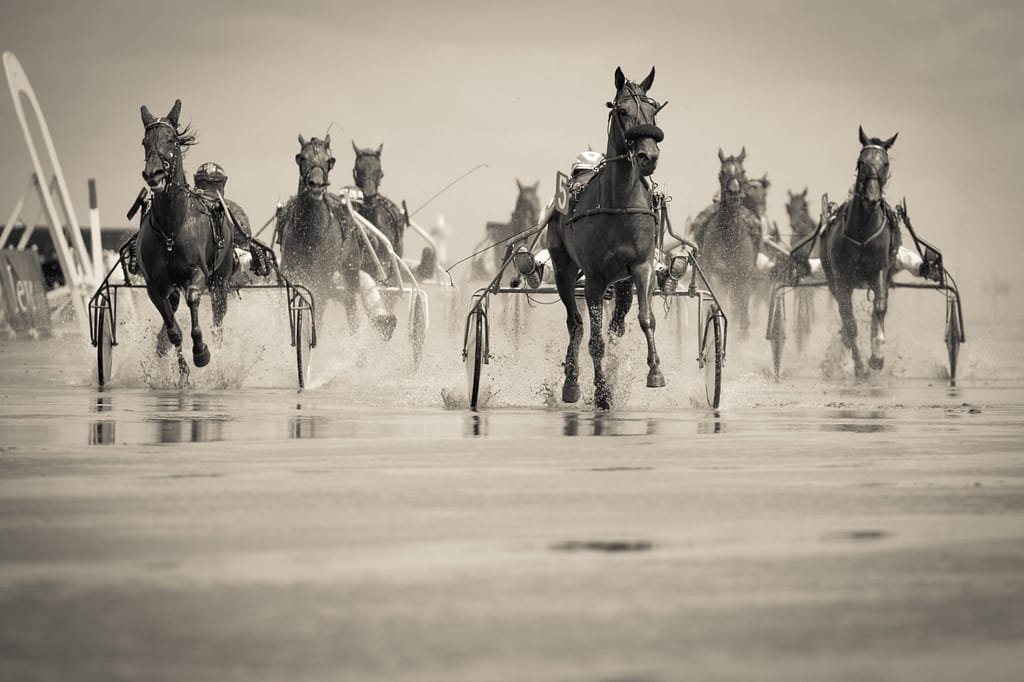
Comprehensive Guide
Horse care and management encompass a wide range of responsibilities, all aimed at ensuring the health, happiness, and performance of your equine companion. Whether you’re a seasoned equestrian or a newcomer to the horse world, understanding the fundamentals of horse care, stable management, and common health issues is crucial. This guide covers essential aspects of horse care, providing practical tips and insights to help you create a nurturing environment for your horse.
Fundamentals of Horse Care
Nutrition
Proper nutrition is the cornerstone of horse care, influencing a horse’s health, performance, and overall well-being. A balanced diet typically includes forage (hay or grass), grains, supplements, and plenty of fresh water.
- Forage: Horses should have constant access to quality forage, which provides necessary fiber and helps maintain digestive health. On average, a horse consumes 1.5% to 2% of its body weight in forage daily.
- Grains: Depending on the horse’s activity level, grains can be added to provide additional energy. Oats, barley, and corn are common choices but should be fed in moderation to avoid digestive issues.
- Supplements: These can address specific nutritional deficiencies. Common supplements include vitamins, minerals, and joint support formulations.
- Water: A horse needs 5 to 10 gallons of fresh water daily. Dehydration can lead to serious health issues, so always ensure ample water availability.
Grooming
Regular grooming keeps your horse’s coat clean and shiny while promoting good circulation and bonding time.
- Brushing: Daily brushing removes dirt, sweat, and loose hair. Use a curry comb to loosen dirt, followed by a stiff brush and finishing with a soft brush.
- Hoof Care: Clean your horse’s hooves daily using a hoof pick to remove debris and check for signs of thrush or injury.
- Bathing: Horses typically don’t need frequent baths, but occasional washing with a mild shampoo can help keep their coat in top condition. Always ensure the horse is thoroughly dried after a bath.
Health Maintenance
Regular health maintenance ensures your horse stays in peak condition.
- Vaccinations and Deworming: Follow a vet-recommended vaccination schedule and deworming protocol to prevent diseases and parasites.
- Dental Care: Horses’ teeth continuously grow, and regular dental check-ups are essential to prevent issues like sharp points or uneven wear.
- Exercise: Daily exercise is crucial for physical and mental well-being. Tailor the exercise routine to your horse’s age, breed, and activity level.
Stable Management and Creating a Conducive Environment
Stable Setup
Creating a safe and comfortable environment in the stable is vital for your horse’s well-being.
- Ventilation: Proper ventilation prevents respiratory issues. Ensure good airflow by designing stables with windows and vents.
- Bedding: Use dust-free bedding like straw, shavings, or rubber mats to provide comfort and support.
- Cleaning: Regularly clean stalls to prevent ammonia build-up from urine, which can harm your horse’s respiratory system.
Pasture Management
A well-maintained pasture provides a natural environment for exercise and grazing.
- Rotation: Rotate grazing areas to prevent overgrazing and allow grass to recover.
- Fencing: Ensure fences are secure and visible to prevent injuries.
- Shelter: Provide adequate shelter in pastures for protection against extreme weather conditions.
Routine Care
Develop a routine that includes feeding, cleaning, and health checks.
- Feeding Schedule: Stick to a consistent feeding schedule to maintain digestive health.
- Stall Cleaning: Clean stalls daily, removing manure and soiled bedding.
- Health Monitoring: Regularly check for signs of illness, injury, or distress.
Understanding and Managing Common Horse Health Issues
Colic
Colic is a broad term for abdominal pain in horses and can range from mild to life-threatening.
- Prevention: Maintain consistent feeding schedules, provide ample water, and ensure regular exercise.
- Signs: Watch for signs like pawing, rolling, sweating, and loss of appetite.
- Management: Contact a veterinarian immediately if colic is suspected. Walking the horse can help prevent rolling and worsening of the condition until the vet arrives.
Laminitis
Laminitis is inflammation of the laminae in the hoof, often caused by overfeeding or metabolic issues.
- Prevention: Avoid overfeeding grains, manage weight, and limit access to lush pasture.
- Signs: Symptoms include lameness, heat in the hooves, and reluctance to move.
- Management: Immediate veterinary care is essential. Treatment may include pain relief, dietary changes, and supportive hoof care.
Respiratory Issues
Respiratory problems, such as heaves (equine asthma), can significantly impact a horse’s quality of life.
- Prevention: Ensure good stable ventilation, use dust-free bedding, and soak hay if necessary.
- Signs: Chronic cough, nasal discharge, and labored breathing are common signs.
- Management: A vet can recommend treatments like bronchodilators or corticosteroids. Managing the horse’s environment is also crucial.
Skin Conditions
Skin conditions like rain rot, ringworm, and sweet itch can affect your horse’s comfort and health.
- Prevention: Regular grooming, maintaining a clean environment, and avoiding sharing grooming tools.
- Signs: Look for hair loss, scabs, itching, and inflammation.
- Management: Treatments vary but often include topical medications, antifungal shampoos, and environmental management.
Conclusion
Effective horse care and management involve a combination of proper nutrition, diligent grooming, and a well-maintained living environment. Understanding common health issues and how to prevent and manage them is crucial for every horse owner. By adhering to these principles, you can ensure your horse remains healthy, happy, and performs at its best.
Reader Engagement
We’d love to hear from you! Share your experiences and tips in the comments below. Have questions or need advice on specific horse care issues? Join our upcoming themed advice session on equine nutrition and diet. Don’t forget to subscribe for updates on upcoming equestrian events and more insightful articles!
Build Your Business and Learn Affiliate Marketing
See you there!
Our Unique Value Propositions
Discover why Chwals GPT is the top choice for equestrians looking to build their online presence (register for free)
Tailored Equestrian Expertise – Community Connection – Intuitive User Experience



